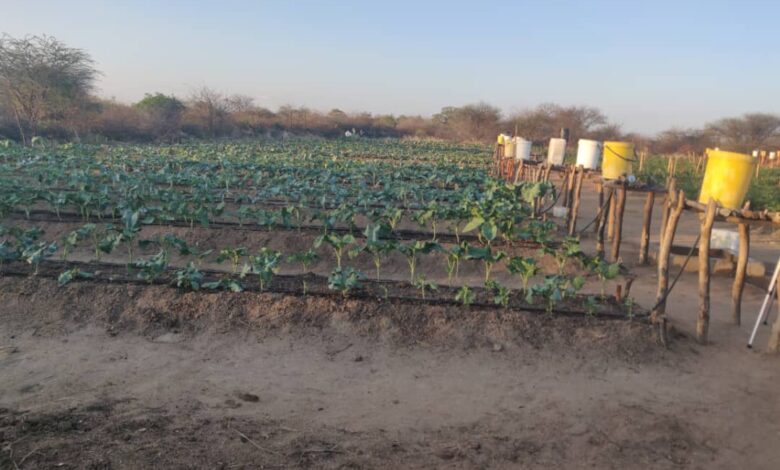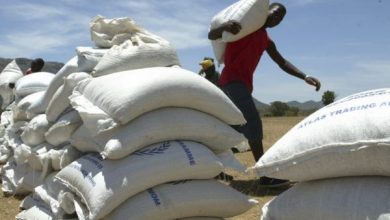Intuba Trust uplifts Matabeleland small scale farmers

Intuba Trust, a non-profit-making organisation has uplifted Matabeleland small scale farmers who are into horticulture by drilling for them solar-powered wells and boreholes, a development that has boosted their garden projects.
This is part of efforts by the non-profit-making organisation to eradicate poverty among rural communities in the arid Matabeleland region.
The organisation over the weekend, brought together garden beneficiaries from across Matabeleland South and Matabeleland North to Matobo and Gwanda where they exchanged notes.
Representatives were drawn from areas such as Victoria Falls, Tsholotsho, Nkayi, Lupane, Gwanda, Matobo and others.
The two day workshop which also sought to equip farmers with skills to manage their gardens began with a visit to St Anna, followed Ratanyane (both in Matobo) and ended at Kaufusi, Gwanda South.
From the three gardens visited, the farmers grew green vegetables, beetroot, tomatoes, onions, potatoes, among other crops.
The small scale farmers were trained on book keeping, transparency, accountability and business planning among other critical issues.
Intuba Trust founder, Raphael Mthombeni, who is originally from Matshetsheni Gwanda, District said the workshop was meant to equip small scale farmers with skills to improve their gardens.
“We have 30 gardens that are functioning and we have installed 14 water wells in the past. We installed 10 in 2021 which makes it 24 water wells. We still have a deficit of other wells that we need to do,” said Mthombeni.
He said the dream of Intuba Trust was to start with a garden, before venturing into livestock farming.
Sekusile Garden chairlady, Irene Moyo from St Anna, said the installation of a solar powered water system has benefitted both the community and livestock.
“We started this garden in September 2020; we had no water and we relied on dam water which was far away. The installation of the solar powered water system has helped us in terms of having a water source for our livestock and for us the villagers as we used to drink the dam water which we shared with animals,” she said.
Moyo said the garden project has assisted many parents in the community as they can now afford to buy school stationery for their children from the money they raise from selling vegetables.
Lucky Ncube from Ratanyane, Makoloyi, said they started the garden as an effort to have a community project.
“We have a community garden which we started as I felt that our community needed something to do, therefore I had to start this garden and engage some other stakeholders such as Intuba Trust. We have a garden that is a hectare and a half and we are doing a lot of farming for the community,” said Ncube.
He said after selling the produce, the community re-invests into the project.
“We have a clear outlined plan in terms of scaling up our garden because we don’t want to be called small scale farmers all the time, we have to grow and become commercial farmers in terms of horticulture, goat farming and cattle fattening,” he said.
Ncube however said the community has a challenge in fencing the garden.
“Our garden does not have a proper fencing, those are the challenges that we can say but as for the water challenge definitely we have been assisted and we want to thank Intuba Trust for bringing water to us. But it was not just water that was brought from nowhere, it was after they noticed our hard work and commitment without water that we really wanted to do this,” he said.
He urged the communities in Matabeleland to stand up and do things on their own.
In addition, Sipho Mpofu from Wozubone Project in Kaufusi, said the project is helping the vulnerable members of the community.
“We help the orphans in the community by giving them vegetables; we also pay school fees for them. We also help the widows, the elderly in the community and we look forward to extending our hand to those with disability across the ward,” said Mpofu.
Ward 19 councillor, Tomson Makhalima from Gwanda said the garden has helped to sustain the Kafusi area.





